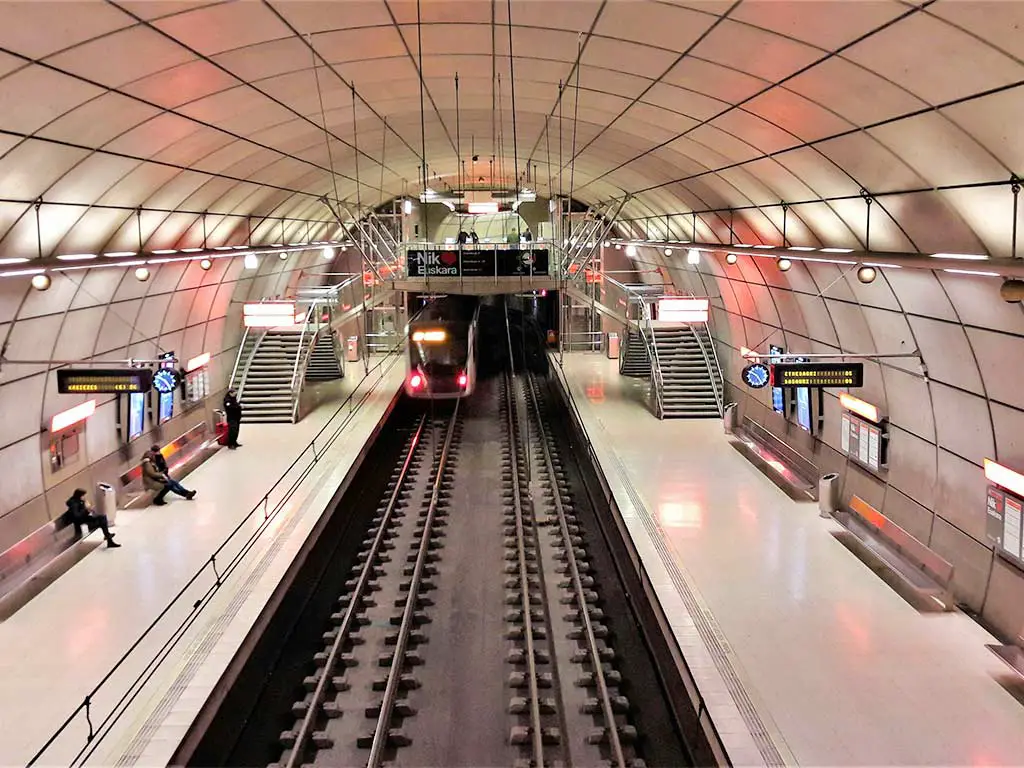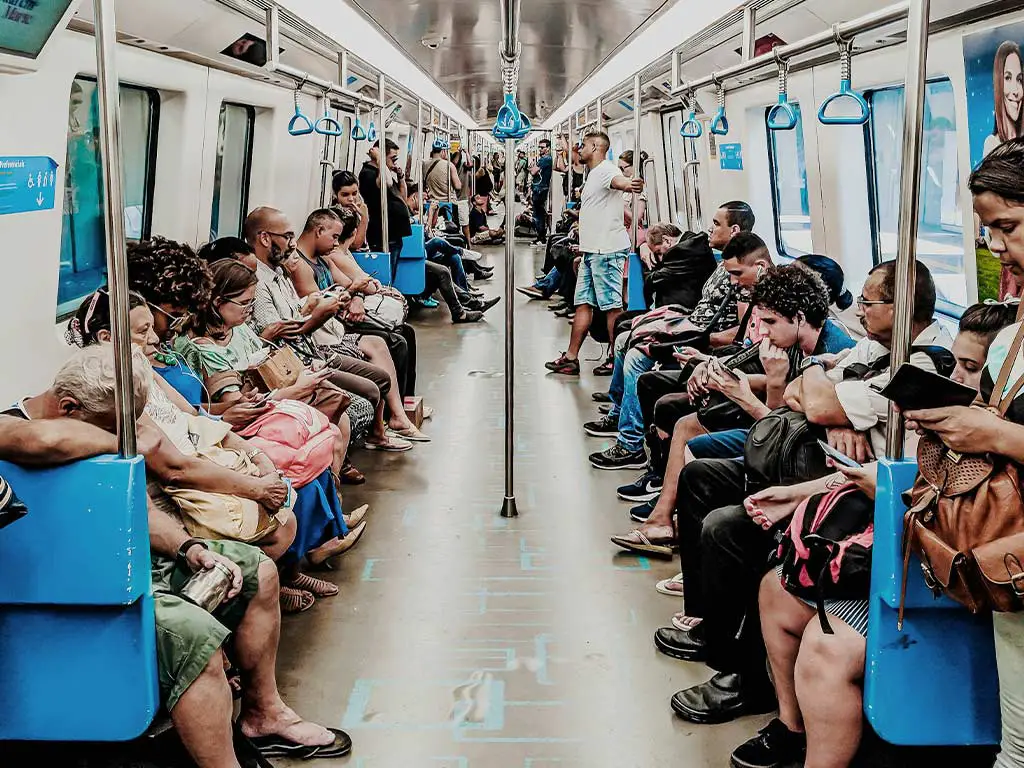When exploring Washington DC, navigating the city’s efficient Metro system is key to unlocking its treasures. With a well-planned grid layout and a reliable Metro network, getting around the District becomes a breeze.
Whether you’re strolling through historic neighborhoods or visiting iconic landmarks, the Metro offers a convenient way to traverse the capital like a local.
Discovering Washington DC’s rich tapestry of attractions is made simpler with the Metro’s seamless connections and accessibility.
From the vibrant streets of downtown to the cultural hubs of the city, the Metro serves as your gateway to all that DC has to offer.
Embrace the freedom of exploring the nation’s capital without the need for a car, as the Metro and other transport options cater to your every travel need.
Overview of Washington DC’s Metro System

When exploring Washington DC, utilizing the Metro system is crucial. The Metro network is known for its efficiency and reliability, allowing you to navigate the city’s grid layout with ease and access its numerous treasures.
Traveling via the Metro enables you to immerse yourself in the local experience, offering seamless connections to various attractions and cultural hubs across the District.
With the Metro and other transportation options at your disposal, you can freely explore the nation’s capital without the need for a car.
Key Features of the Metrorail
- Extensive Network: The Metrorail system in Washington DC boasts an extensive network that covers important areas of the city, making it a comprehensive mode of transportation for both residents and visitors.
- Accessibility: The Metro is designed to be accessible to all, with stations equipped with elevators, escalators, and other facilities to ensure a smooth travel experience for individuals with disabilities or special needs.
- Clean and Safe: Washington DC’s Metro is well-known for its cleanliness and safety measures, providing passengers with a secure environment to travel in.
- Affordable: The fare system of the Metrorail is cost-effective, offering various ticket options such as single rides, day passes, and smart cards for regular commuters.
- Integration with Bus Services: The Metro system is integrated with bus services, allowing passengers to easily transfer between different modes of public transportation within the city.
- Operating Hours: The Washington DC Metro operates from early morning until late at night, providing convenient service hours for commuters and tourists alike.
- Frequencies: Trains on the Metrorail system run at regular intervals during peak hours and off-peak times, ensuring that passengers do not have to wait long for their next train. This schedule reliability makes planning your journey simple and efficient.
Ticketing Options for Metro Travelers

When navigating Washington DC’s Metro system, understanding the various ticketing options available can enhance your travel experience.
The Metro provides several convenient and cost-effective fare choices to suit the needs of both occasional visitors and daily commuters.
Types of Passes and Their Benefits
When traveling on the Washington DC Metro system, you have various pass options that offer convenience and savings. Passes can be purchased at farecard vending machines and provide unlimited travel within the Metro system for a specified duration.
Here are the types of passes available:
1-Day Unlimited Pass:
Cost: $13.00
Validity: One day
Benefits: Unlimited Metrorail and Metrobus travel on the day of purchase until the end of the operating day.
3-Day Unlimited Pass:
Cost: $28.00
Validity: Three consecutive days
Benefits: Unlimited Metrorail and Metrobus travel for three days from the first use.
7-Day Short Trip Unlimited Pass:
Cost: $38.00
Validity: Seven consecutive days
Benefits: Valid for Metrorail trips costing up to $3.85, the maximum off-peak fare, for seven days.
Understanding the SmarTrip Card
The SmarTrip Card is a key tool for seamless travel on the Washington DC Metro. It is a rechargeable smart card that allows you to pay for Metro fare and travel on buses.
Here’s what you need to know about the SmarTrip Card:
- Initial Cost: $10 for the card, which includes $2 for the card itself and $8 in stored value.
- Adding Value: You can add value to your SmarTrip Card at Fare Vending and Add Value machines inside Metro stations. The Fare Vending machines accept cash only up to $20, with change up to $10 returned in coins.
- Passes: Passes purchased are loaded onto the SmarTrip Card, granting unlimited travel within the Metro system for a designated period.
- Benefits: The SmarTrip Card offers convenience, as it eliminates the need for paper tickets and allows for quick access through fare gates.
Navigating the Metro Stations

Successfully navigating Washington DC’s Metro stations can enhance your travel experience, making it easier to access the city’s diverse attractions and neighborhoods.
Here’s a comprehensive guide to help you navigate the Metro stations efficiently:
Finding Your Platform and the Right Train
When you step into a Metro station in Washington DC, your first task is to identify the correct platform and the train heading in your desired direction.
To do this efficiently, look for the circular target on top of the fare gates.
- This target is where you’ll tap your SmarTrip card to open the gate and proceed further into the station.
- Remember, at the end of your journey, you must also tap the fare gate when exiting to avoid extra charges.
- Check the digital display on the fare gate when leaving – it will show your remaining card balance.
Reading Metro Signs and Maps
Washington DC’s Metro system boasts straightforward navigation with its color-coded lines:
Red, Green, Yellow, Blue, Silver, and Orange. Understanding these colors simplifies transfers and ensures you’re boarding the right train.
- The familiar multicolored Metro map displayed in stations and on trains aids in route planning and station identification.
- Keep in mind that boarding a train in the wrong direction can lead you away from your intended destination, so double-check your route before boarding.
- Pay attention to platform signs and announcements to ensure you’re on the right track.
Metro Accessibility and Services

Washington DC’s Metro system is designed to be accessible and convenient for all passengers, including those with disabilities and special needs.
The Metro offers a variety of services and features to ensure a smooth and inclusive travel experience.
Services for Disabled Passengers
Metro in Washington DC offers a range of services to ensure accessibility for disabled passengers. You’ll find elevators, ramps, and designated spaces on trains and buses to accommodate individuals with mobility challenges.
Moreover, Metro provides paratransit services for those unable to use fixed-route public transportation due to disabilities. These services aim to make traveling on the Metro system inclusive and convenient for everyone.
Also notice tactile paving and audio announcements throughout stations to assist visually impaired passengers in navigating the Metro system easily.
These accessibility features demonstrate Metro’s commitment to providing a seamless travel experience for all riders, regardless of their physical abilities.
Safety and Security Measures
When you travel on Washington DC’s Metro system, your safety and security are top priorities. Metro has various safety measures in place, including emergency call boxes, surveillance cameras, and Transit Police patrols to enhance passenger security.
You can board trains and buses with confidence, knowing that Metro is dedicated to ensuring your safety throughout your journey in the nation’s capital.
When traveling on Washington DC’s Metro system, your safety and security are top priorities. Metro has various safety measures in place to enhance passenger security, including emergency call boxes, surveillance cameras, and Transit Police patrols.
You can board trains and buses with confidence, knowing that Metro is dedicated to ensuring your safety throughout your journey in the nation’s capital.
Tips for Efficient Metro Travel in Washington DC
Navigating Washington DC’s Metro system efficiently can greatly enhance your travel experience, making it easier to access the city’s numerous attractions and neighborhoods.
Here are some tips to help you make the most of your Metro journeys:
Best Times to Travel
Knowing the best times to travel on the Washington DC Metro can help you navigate the system more efficiently.
During non-peak hours, which are typically from 9:30 am to 3 pm on weekdays and from 7 pm to 11:30 pm Monday to Thursday, as well as from 7 pm to 1 am on Fridays, Saturdays, and Sundays, you can benefit from lower fares ranging from $2 to $3.85.
In contrast, peak hours, occurring from 5:30 am to 9:30 am and from 3 pm to 7 pm on weekdays, and from midnight to 1 am on Fridays and Saturdays, may result in higher fares ranging from $2.25 to $6.
To make the most of your journey, consider purchasing a 1-Day Rail/Bus pass for $14.75 or a 7-Day short trip pass for $38.50 for cost-effective travel on the Metro.
How to Manage Metro During Peak Hours
Managing your Metro travel during peak hours in Washington DC requires planning and awareness.
As the Metro system experiences higher ridership during peak times, it’s crucial to anticipate potential crowds and delays.
To ensure a smoother commute, allow extra time for your journey, especially during rush hours in the morning and evening.
Take advantage of the Metro’s Trip Planner, which assists you in finding the best routes, estimating trip times, and providing cost details.
Additionally, if you’re traveling during peak hours, be prepared for busier stations and trains by keeping your SmarTrip card handy for quick access through fare gates.
By staying informed and prepared, you can navigate the Metro efficiently even during busy periods.
Frequently Asked Questions
Can I ride the DC Metro without a SmarTrip card?
A SmarTrip® card is required for each rider age 5 and older (up to two children under age five may travel free with each fare paying adult).
How much is a 3 day Metro pass in DC?
A 3-day Metro pass in DC costs around $28 and provides unlimited Metrorail and Metrobus rides within the set period.
How do you pay for Metro in DC?
You can pay for Metro in DC using a SmarTrip® card for both Metrorail and Metrobus rides. Fares vary based on the time of day and distance traveled. Metrobus also accepts bills and coins.
How do you use the Metro in DC?
To ride the DC Metro, you need to use a SmarTrip® card, which can be obtained physically or via the SmarTrip app. Purchase a SmarTrip card online, in person, or through the app for convenient payment across Metro services.
Is DC Metro cheaper than driving?
Commuting costs using the IRS rate and typical parking expenses can be around twice as much as using the DC Metro, even during peak times and parking at a Metro lot.
Conclusion
Exploring Washington DC with the Metro system offers a convenient, safe, and cost-effective way to navigate the city.
The Metro’s extensive network, user-friendly features like the SmarTrip Card, and emphasis on accessibility make it a top choice for both locals and tourists.
By familiarizing yourself with the Metro map, understanding color-coded lines, and following directional cues, you can easily navigate the system.
Safety measures, services for disabled passengers, and efficient travel tips enhance your overall Metro experience.
Whether you’re planning your route, avoiding peak hours, or preparing for potential delays, the Metro provides a reliable transportation option in the bustling capital. Embrace the Metro for seamless city exploration in Washington DC.




Scott Jung